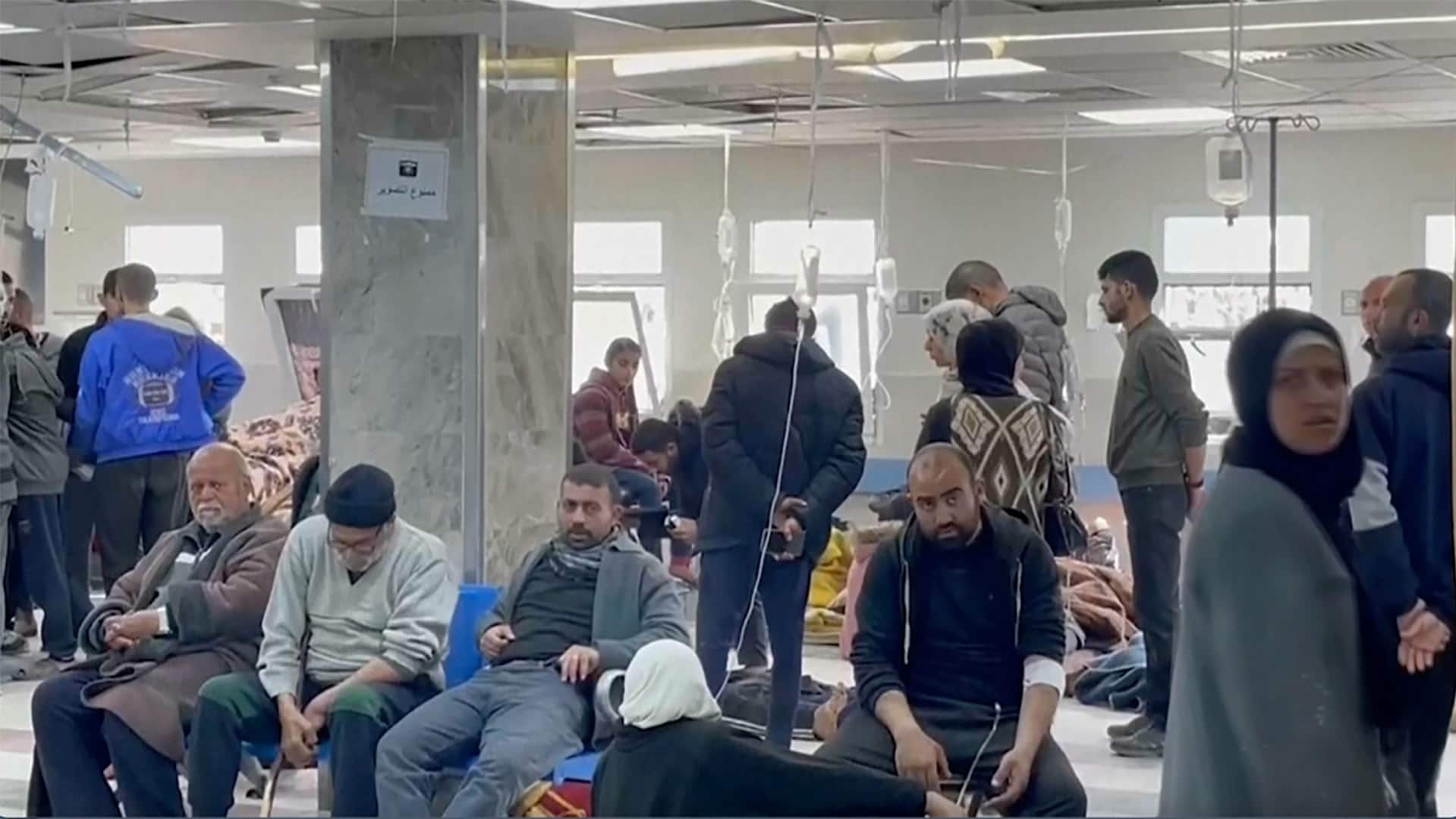U.S. officials said military C-130 cargo planes on Saturday dropped food in pallets over Gaza, two days after more than 100 Palestinians who had surged to pull goods off an aid convoy were killed during an encounter with Israeli troops amid the war with Hamas.
Three planes from Air Forces Central dropped 66 bundles containing about 38,000 meals into Gaza at 8:30 a.m. ET, according to two of the officials, who spoke on condition of anonymity before a public announcement.
The airdrop is expected to be the first of many announced Friday by President Joe Biden. The aid will be co-ordinated with Jordan — its army carried out airdrops of food, medicine and other supplies throughout the territory last Monday and Thursday.
Late Wednesday, Canadian International Development Minister Ahmed Hussen confirmed Canada is working to airdrop humanitarian aid to the Gaza Strip as soon as possible, joining countries including France, which has already done the same.
Olivia Batten, a spokesperson for Hussen, specified no airlifts would happen using Canadian military aircraft.
Hussen said on Wednesday that Ottawa was exploring new options to deliver aid to the Palestinian territory as the war that began Oct. 7 continues.
“Airdrops of aid into Gaza, in partnership with like-minded countries like Jordan,” were on the table, he said.
Pressure is mounting on Israel over the deaths of Palestinians lining up for aid in an incident during which its soldiers fired at the crowd. Several countries are backing a UN call for an inquiry.
At least 115 Palestinians were killed and hundreds more wounded near an aid convoy in Gaza City on Thursday as they scrambled for supplies, health officials in Hamas-ruled Gaza said.
Israel said many of the dead were trampled in a chaotic crush for the food aid and its troops fired warning shots after the crowd moved toward them in a threatening way.
In urging an international investigation, the European Union’s diplomatic service said in a statement on Saturday that many of the Palestinians killed or wounded as they tried to get bags of flour from the convoy were hit by Israeli army fire.
White House national security spokesperson John Kirby said on Friday the airdrops will deliver emergency humanitarian assistance in a safe way to people on the ground.
Reaching remote places
The C-130 cargo plane is widely used by the military to deliver aid to remote places due to its ability to land in austere environments and cargo capacity.
A C-130 can airlift as much as 19,000 kilograms of cargo and its crews know how to rig the cargo, which sometimes can include vehicles, onto massive pallets that can be safely dropped out of the back of the aircraft.
U.S. air force loadmasters secure the bundles onto pallets with netting that is rigged for release in the back of a C-130, and then crews release it with a parachute when the aircraft reaches the intended delivery zone.
Since the war began, Israel has largely barred entry of food, water, medicine and other supplies, except for some aid entering the south from Egypt at the Rafah crossing and Israel’s Kerem Shalom crossing.
The United Nations says a quarter of Gaza’s 2.3 million people face starvation after nearly five months of fighting that began with a Hamas attack on Israel on Oct. 7.
Aid officials have said airdrops are not an efficient means of distributing aid and are a measure of last resort.
Arif Husain, chief economist for the World Food Program, told Rosemary Barton Live that ‘pretty much everybody’ living in Gaza is suffering from hunger, and about a quarter of the population is ‘literally starving.’






















Discussion about this post